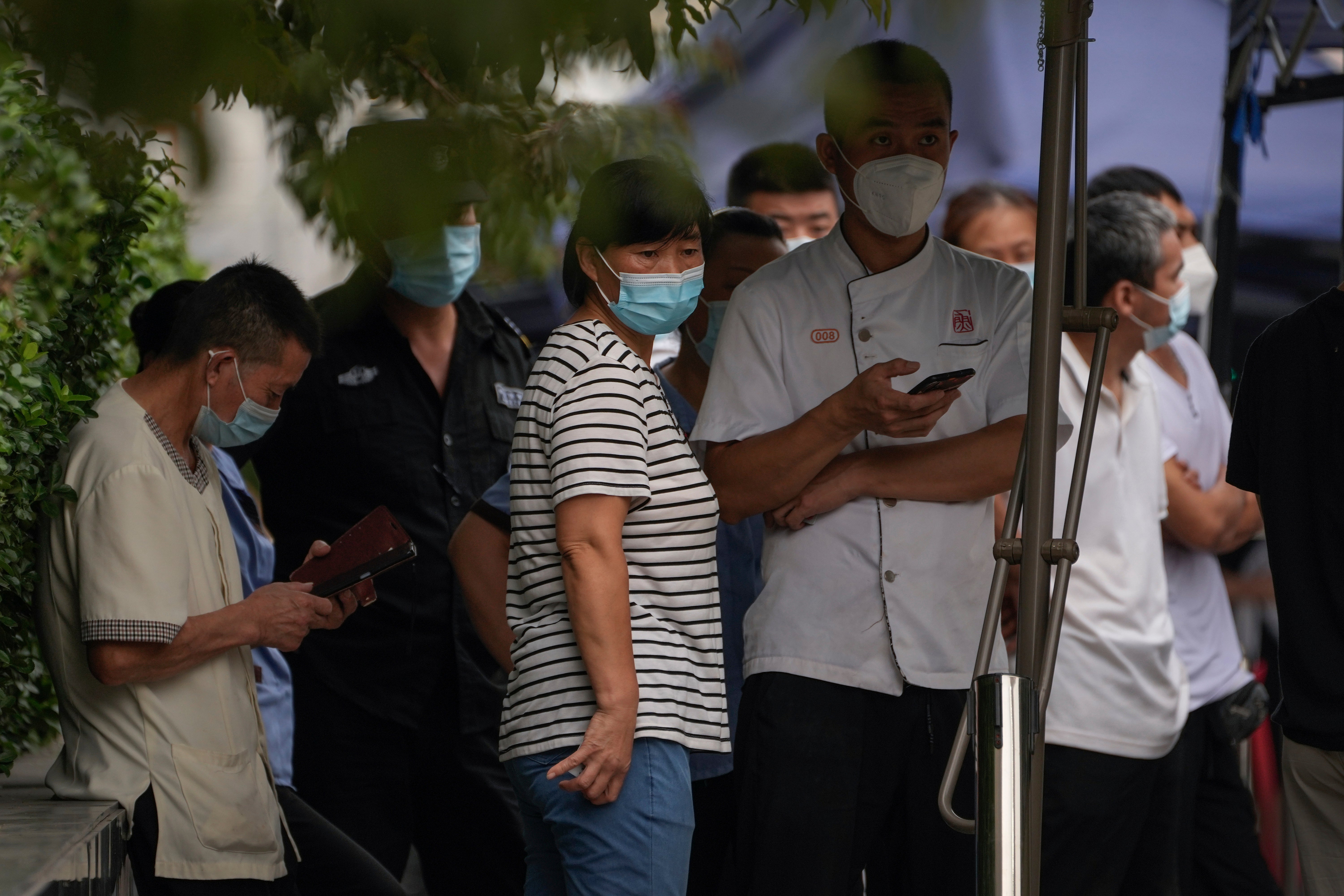WHO: World coronavirus cases fall 24%; deaths rise in Asia
New coronavirus cases reported globally in the last week dropped by nearly a quarter while deaths fell by 6%

Your support helps us to tell the story
From reproductive rights to climate change to Big Tech, The Independent is on the ground when the story is developing. Whether it's investigating the financials of Elon Musk's pro-Trump PAC or producing our latest documentary, 'The A Word', which shines a light on the American women fighting for reproductive rights, we know how important it is to parse out the facts from the messaging.
At such a critical moment in US history, we need reporters on the ground. Your donation allows us to keep sending journalists to speak to both sides of the story.
The Independent is trusted by Americans across the entire political spectrum. And unlike many other quality news outlets, we choose not to lock Americans out of our reporting and analysis with paywalls. We believe quality journalism should be available to everyone, paid for by those who can afford it.
Your support makes all the difference.New coronavirus cases reported globally dropped nearly a quarter in the last week while deaths fell 6% but were still higher in parts of Asia, according to a report Thursday on the pandemic by the World Health Organization.
The U.N. health agency said there were 5.4 million new COVID-19 cases reported last week, a decline of 24% from the previous week. Infections fell everywhere in the world, including by nearly 40% in Africa and Europe and by a third in the Middle East. COVID deaths rose in the Western Pacific and Southeast Asia by 31% and 12% respectively, but fell or remained stable everywhere else.
At a press briefing Wednesday, WHO Director-General Tedros Adhanom Ghebreyesus said reported coronavirus deaths over the past month have surged 35%, and noted there had been 15,000 deaths in the past week.
“15,000 deaths a week is completely unacceptable, when we have all the tools to prevent infections and save lives,” Tedros said. He said the number of virus sequences shared every week has plummeted 90%, making it extremely difficult for scientists to monitor how COVID-19 might be mutating.
“But none of us is helpless,” Tedros said. “Please get vaccinated if you are not, and if you need a booster, get one.”
On Thursday, WHO's vaccine advisory group recommended for the first time that people most vulnerable to COVID-19, including older people, those with underlying health conditions and health workers, get a second booster shot. Numerous other health agencies and countries made the same recommendation months ago.
The expert group also said it had evaluated data from the Pfizer-BioNTech and Moderna vaccines for younger people and said children and teenagers were in the lowest priority group for vaccination, since they are far less likely to get severe disease.
Joachim Hombach, who sits on WHO's vaccine expert group, said it was also uncertain whether the experts would endorse widespread boosters for the general population or new combination vaccines that target the omicron variant.
"We need to see what the data will tell us and we need to see actually (what) will be the advantage of these vaccines that comprise an (omicron) strain,” he said.
Dr. Alejandro Cravioto, the expert group's chair, said that unless vaccines were proven to stop transmission, their widespread use would be “a waste of the vaccine and a waste of time.”
Earlier this week, British authorities authorized an updated version of Moderna's COVID-19 vaccine that targets omicron and the U.K. government announced it would be offered to people over 50 beginning next month.
___
Follow AP’s coverage of the pandemic at https://apnews.com/hub/coronavirus-pandemic